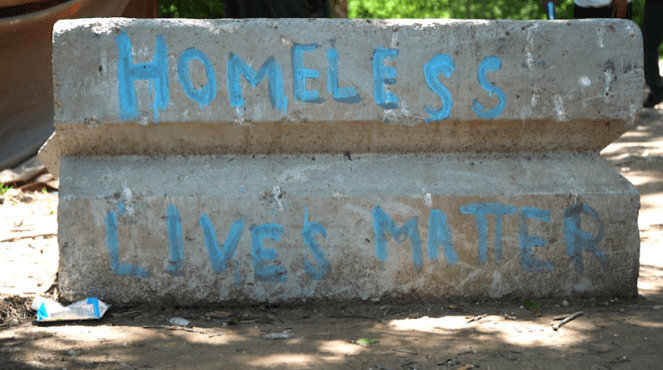We Can Now | Fiercely Focused
AUSTIN — When Antony Jackson started his direct service nonprofit in 2020, the Homelessness Response System he became part of did not reflect his community.
Jackson experienced housing instability and homelessness growing up in East Austin, bouncing between emergency shelter, hotels, cars, and friends’ houses. A star on his college basketball team, Jackson left with his degree, only to experience homelessness again “because we never really built that foundation.”
He and his wife, Kendra, have that stable foundation now, and they founded We Can Now to help others build foundations of their own. But when they did so, they stepped into a space that is dominated by majority-white organizations serving a disproportionately Black population.
“When you see an organization like We Can Now that’s Black-led, who’s home-grown, we’re not used to getting these type of resources or even getting these grants like this,” Jackson says. “There has been some systematic racism and there’s been barriers that have purposely kept us out.”
He’s started to feel a shift toward equity and inclusion since starting his work. This Juneteenth, watch below to see how Antony and Kendra Jackson and the entire We Can Now team are Fiercely Focused on ending homelessness.
Stop by to get to know We Can Now a little better at Austin’s 2022 Juneteenth Celebration on Saturday, June 18.
New Racial Disparities Data
ECHO’s Research and Evaluation Team is preparing to publish the 2022 Racial Disparities Report next week, analyzing demographic data of people who are receiving services through the Homelessness Response System. Last year’s report (PDF) found only 9% of service provider staff who responded to the voluntary demographic survey were Black, compared to 35% of the people who experience homelessness in our community.
Several key takeaways from this year’s report reinforce the need to diversify staff at existing agencies and proactively recruit Black- and Brown-led organizations to better understand and serve the needs of our population:
- The probability of experiencing homelessness in Travis County for a Black/African American person is more than six times than that of a white person.
- Hispanic/Latinx and Black people are disproportionately more likely to report having been born and/or raised in the Austin area.
- A majority of both Black (54%) and Hispanic/Latinx (65%) unhoused people our system serves are under the age of 35, and a majority of white people (69%) are 35 and older. Hispanic/Latinx people are comprised of nearly half youth under the age of 25, and nearly half are members of family households with children. Black people and people of two or more races are also more likely than their white neighbors to be youth or members of families with children.
- In 2021, Black and Hispanic/Latinx people we serve were more likely than white people to enter Rapid-Rehousing (RRH) projects. White people were more likely to enroll in Permanent Supportive Housing (PSH) projects. PSH projects are the most supportive intervention, meaning Black people were referred less often to programs that provide the most robust services.
Our community must also work to understand how to better prevent homelessness, especially considering the disproportionate number of Black and Brown people who experience it. This understanding must inform the development and expansion of prevention programs throughout our community.
New Opportunities for Growth
Antony, Kendra, and their growing team of volunteers are taking steps to grow their operations. Currently they offer resources to meet immediate needs at two encampments every Sunday. Those resources include fresh fruit, band aids, hygiene supplies, hot meals, and much more. “We make these assessments with them so we know what they need,” Jackson says. They’re working with volunteers to add more service days.
We Can Now is one of three organizations to receive a grant to start the Austin Street Outreach Collaborative, an initiative aimed at connecting more people to housing and services equitably. The money will allow them to hire staff members and distribute more direct resources to people. As part of the initiative, We Can Now will soon begin offering housing assessment on-site as well, connecting people to our community’s rehousing system.
“That’s the next step is to keep going and to end it,” Kendra says, “to end homelessness.”
“It’s going to take focus. It’s going to take grit,” Antony adds. “It’s going to take us being uncomfortable. But we can do it.”


